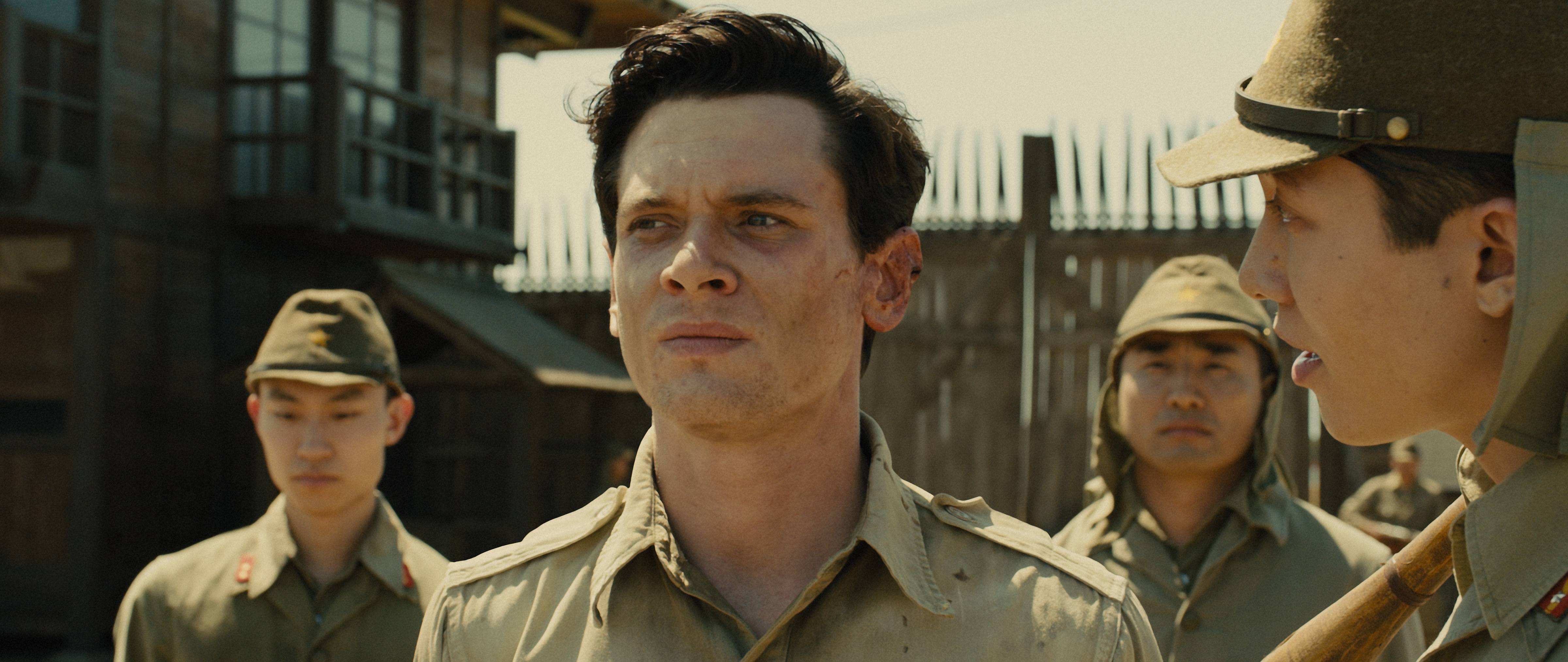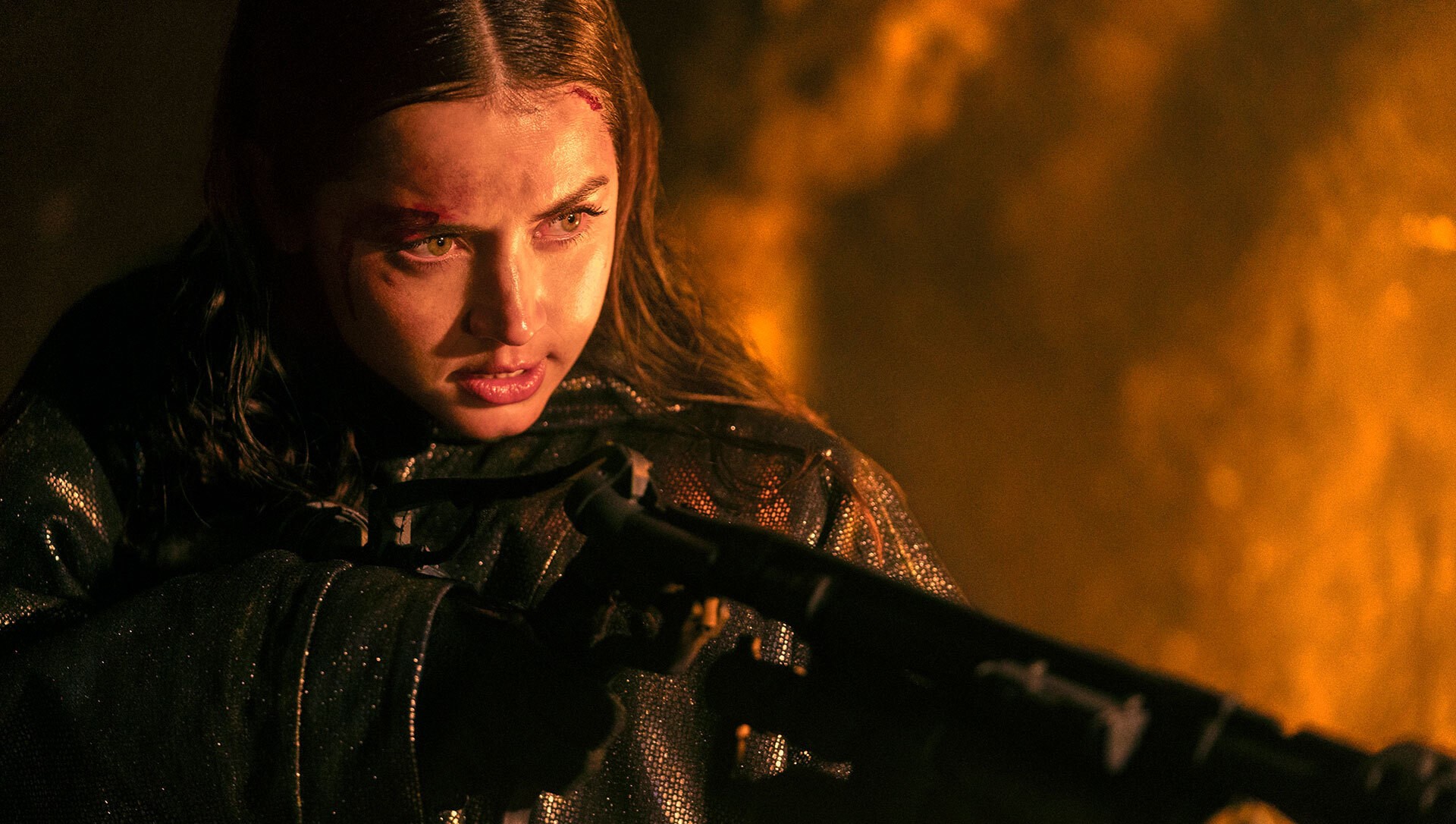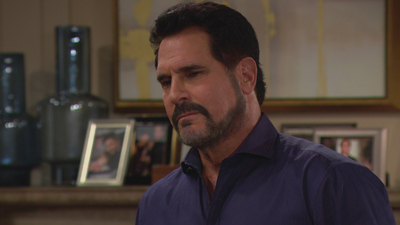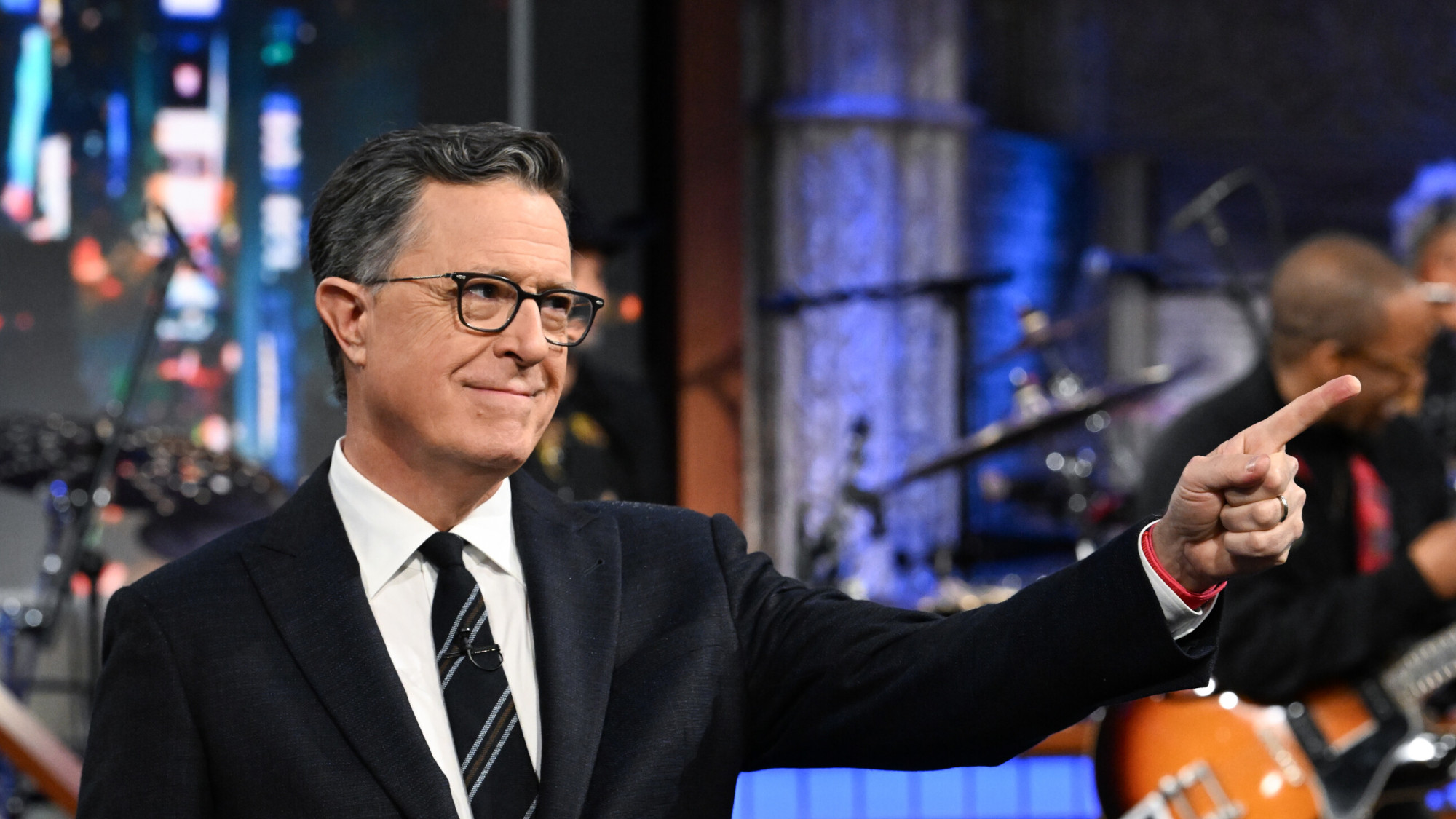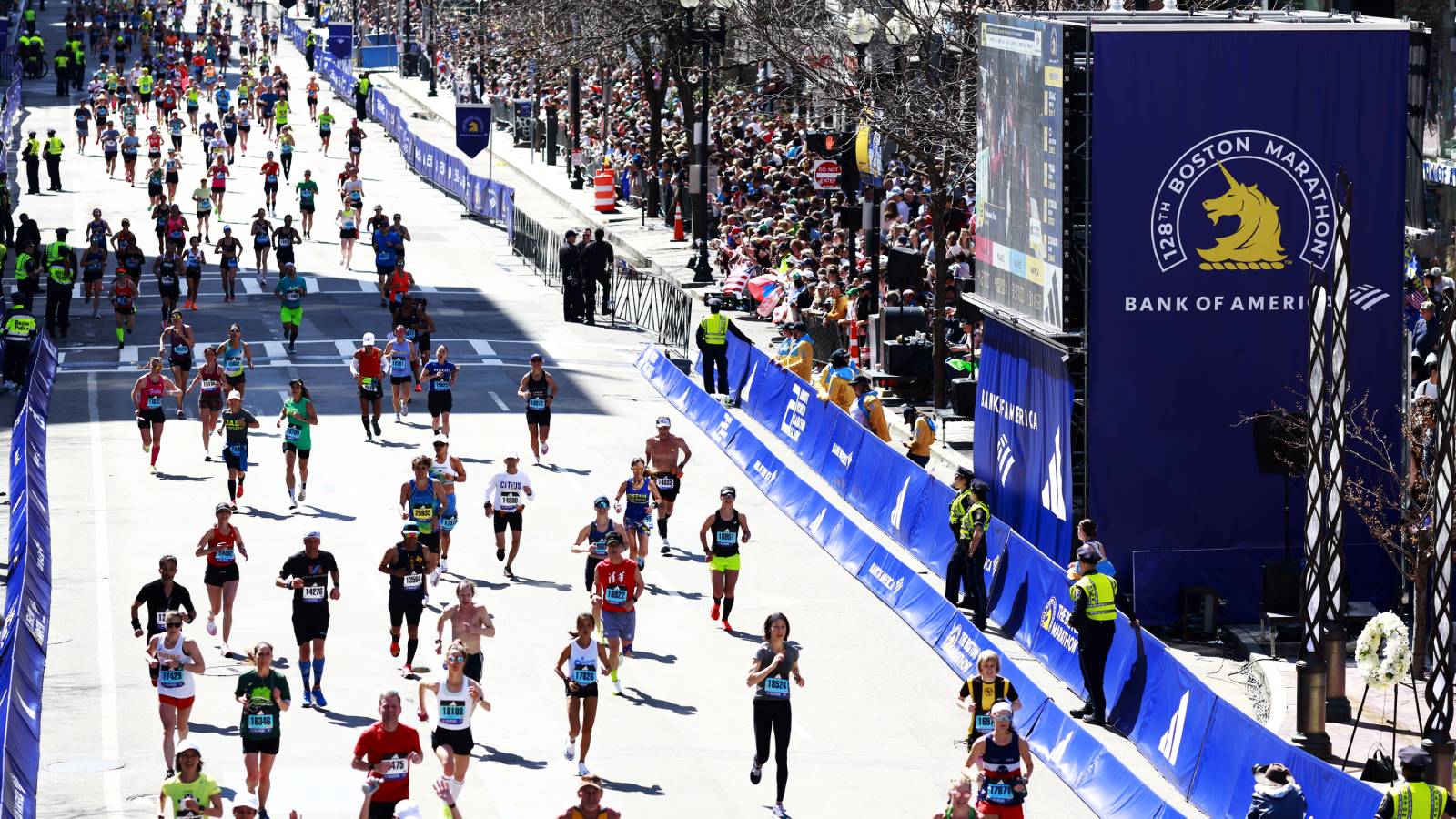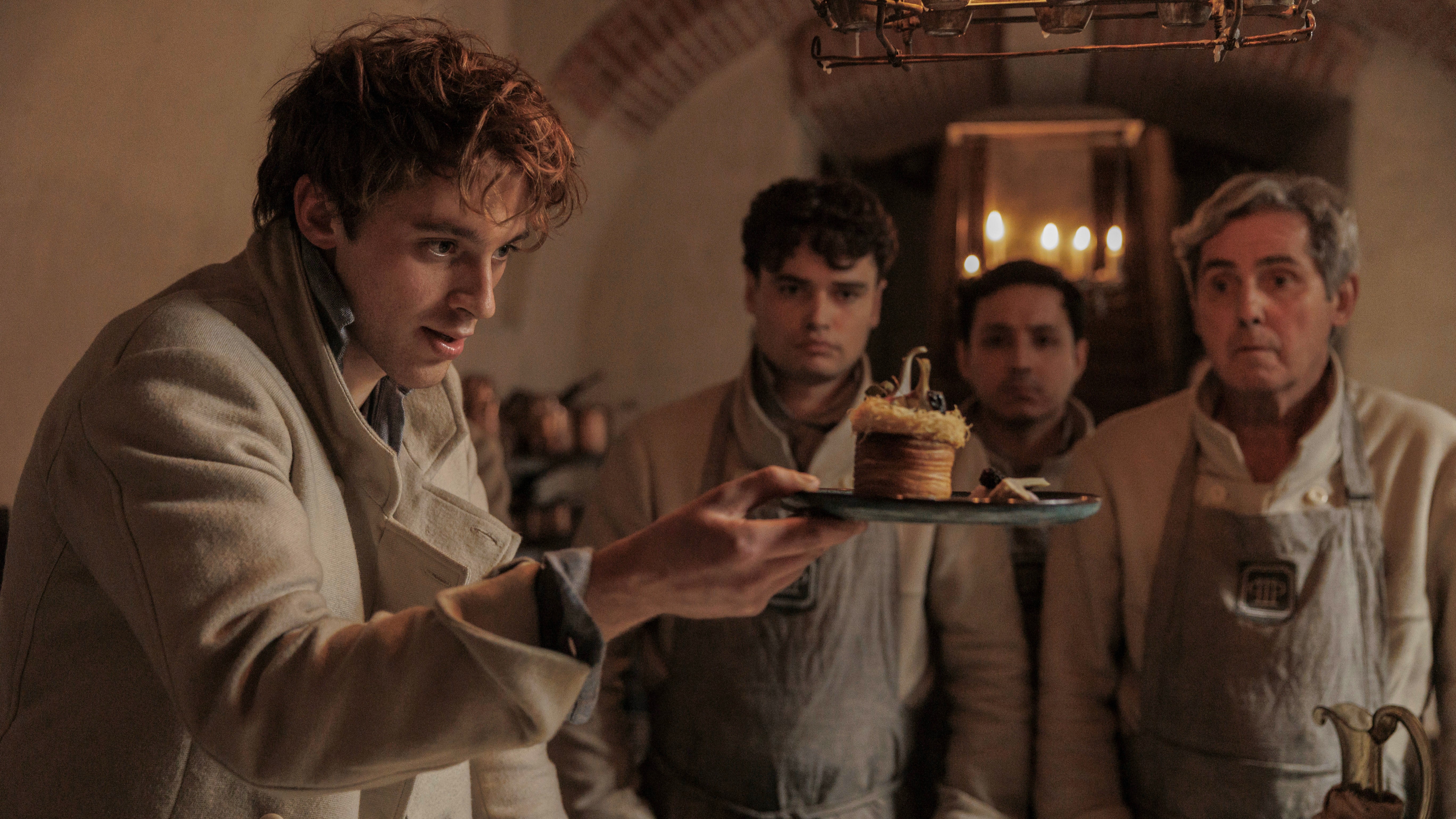Inglourious Basterds - Quentin Tarantino’s WW2 revenge fantasy: it’s not only the spelling that’s juvenile
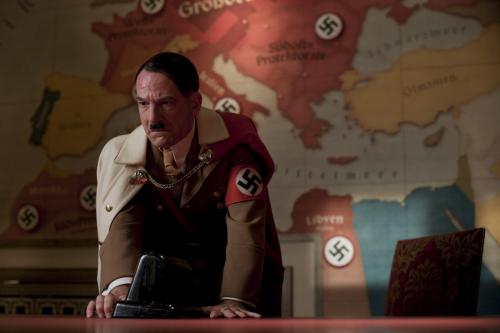
“Once upon a time in Nazi-occupied France…” So begins Quentin Tarantino’s much-hyped World War Two action movie, an ultra-violent fairy tale in which a band of scalp-hunting Jewish-American soldiers go on the rampage behind enemy lines… and, in an act of brazen counter-factual fantasy, shorten the war by a year.
Tarantino has been trumpeting his “bunch of guys on a mission movie” for more than a decade, first floating the project as his follow-up to 1997’s Jackie Brown and tantalisingly bringing it up at regular intervals ever since. He even pitched the title early on: Inglourious Basterds, a wilfully misspelled homage to Enzo Castellari’s 1978 “macaroni combat” movie Inglorious Bastards, a Dirty Dozen rip-off about a group of escaped GI prisoners on the run in occupied France in 1944.
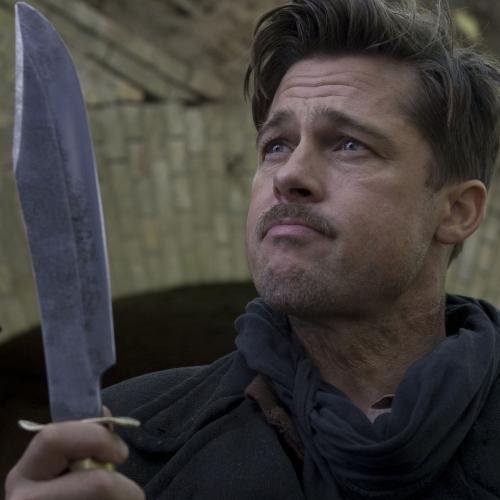
Well, Tarantino has finally made good on his promise, but now that Inglourious Basterds is here it’s clear that the movie has mutated considerably since he first dreamed it up. Far from being a latter-day Dirty Dozen, it’s a sprawling genre-hopping epic, a gaudy patchwork stitched from pastiches of a wildly eclectic mix of film types.
Tarantino starts off in spaghetti western mood. With sweeping shots of a remote homestead, lingering close-ups of a soon-to-be-imperilled farmer and Ennio Morricone’s premonitory music on the soundtrack, we could be in Sergio Leone’s version of the Old West. Yet instead of the parched landscape of Arizona and hired guns in dusters, or Indians, or bandits, the threat on the lush green horizon is an approaching unit of German soldiers.
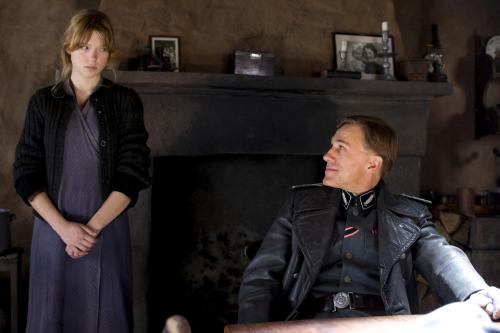
Leading the soldiers is Christoph Waltz’s cunning SS colonel Hans Landa, nicknamed ‘The Jew Hunter’, who proceeds to subject Denis Menochet’s French farmer to a prolix interrogation about the whereabouts of a fugitive Jewish family. Conducted initially in French and then, with a big wink to the audience, in English, the cross-examination, is a typical Tarantino gab-fest.
Fortunately, in Waltz Tarantino has found an actor who carries off the script’s multi-lingual wordiness with panache, while investing his character with a combination of suave menace and knowing humour. He even pulls off the moment when Landa wrong foots his adversary by whipping out an absurdly large, Sherlock-Holmes-style calabash pipe. The Cannes jury earlier this year were clearly impressed and awarded Waltz the festival’s best actor prize.
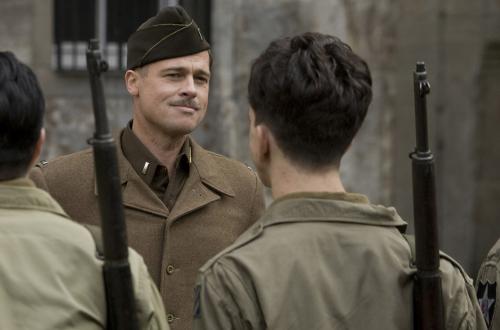
The film’s next chapter (the narrative is divided into five) introduces us to the titular “Basterds” – the unit of Jewish-American GIs led by Brad Pitt’s Tennessee hillbilly officer, Lieutenant Aldo Raine, whose mission is to spread fear behind enemy lines by capturing and butchering German soldiers, Apache-style (hence the scalps).
Get the What to Watch Newsletter
The latest updates, reviews and unmissable series to watch and more!
After this, however, Tarantino drops the World-War-Two-movie-as-western conceit in favour of showing off his encyclopaedic film-geek savvy, liberally strewing references to everything from Ernst Lubitsch comedies to Leni Riefenstahl mountain films.
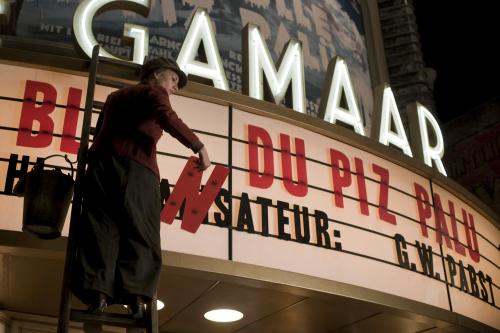
Amid the takeoffs we encounter the story’s other main characters: Mélanie Laurent’s Jewish fugitive Shosanna, fleetingly glimpsed in the opening chapter and now running a cinema in Paris; Daniel Brühl’s German soldier Fredrick Zoller, a war hero turned propaganda film star in the Audie Murphy mould; Michael Fassbender’s British film critic turned commando Archie Hicox; and Diane Kruger’s glamorous German actress Bridget von Hammersmark, darling of the Third Reich but secretly an undercover agent for the British.
After a series of extended set pieces in which Tarantino fully indulges his penchant for garrulous verbal riffs, the film’s various storylines finally converge on the glitzy premiere of Zoller’s film in Shosanna’s cinema. With the German high command expected to attend, the opportunity is ripe for the fulfilment of three overlapping plots of retribution against the Nazis.
The film’s climax is a head-spinning cinematic coup, an audacious rewriting of history that will leave viewers either groaning or cheering. Personally, I found the ending yet another sign of Tarantino’s arrested development – a fantasy of revenge that a teenager might dream up.
The acts of violence meted out by the Basterds are similarly puerile: a deeply unpleasant brand of jokey sadism. It was one thing to cast Hostel director Eli Roth as Pitt’s second in command, but did Tarantino have to import Roth’s torture-porn aesthetic too? (Roth, incidentally, refers to the film’s revenge motif as "kosher porn. It's something I dreamed since I was a kid.")
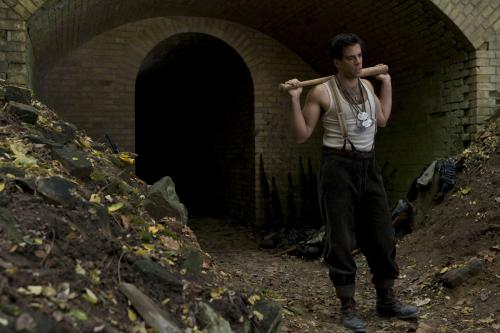
So Tarantino still hasn’t grown up (his fans would be horrified if he had), but if he isn’t any more mature he is certainly more culturally sophisticated than the rube who returned from his travels promoting Reservoir Dogs with the amazing insight that they have the metric system in Europe. Two decades on, he has picked up some more recherché bits of knowledge. Like its anti-hero Colonel Landa, Inglourious Basterds moves fluently between English, German and French (while sending up, en passant, Americans who are left dumbfounded when it comes to foreign tongues). Tarantino even dares to hinge one crucial scene on a tiny gestural nuance that has the capacity to distinguish friend from foe.
Yet it’s on the issue of separating friends from foes, good guys from bad guys that Tarantino seems most muddled. In the course of the movie, the Basterds commit more on-screen atrocities than the Nazis. They’re the ones that are behaving like fascists (dehumanising their foes) and yet we’re supposed to be rooting for them. Even in the world of Inglourious Basterds, this comes across as moral confusion rather than bold revisionism.
On general release from 19th August.
A film critic for over 25 years, Jason admits the job can occasionally be glamorous – sitting on a film festival jury in Portugal; hanging out with Baz Luhrmann at the Chateau Marmont; chatting with Sigourney Weaver about The Archers – but he mostly spends his time in darkened rooms watching films. He’s also written theatre and opera reviews, two guide books on Rome, and competed in a race for Yachting World, whose great wheeze it was to send a seasick film critic to write about his time on the ocean waves. But Jason is happiest on dry land with a classic screwball comedy or Hitchcock thriller.


